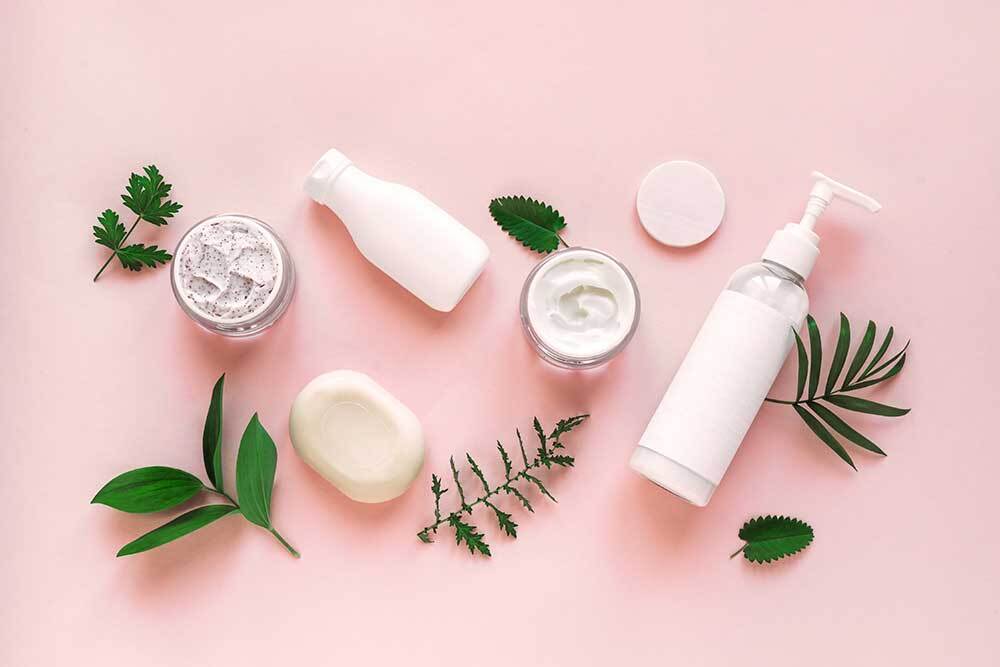Taking care of your skin is important year-round, but the changing seasons can bring different challenges for your skin. To keep your skin healthy and glowing throughout the year, follow these seasonal skincare tips:
Spring:
As the weather warms up, it's important to transition your skincare routine.
- Swap out heavy moisturizers for lighter, hydrating ones.
- Use a gentle exfoliator to slough off dead winter skin cells and reveal a fresh complexion.
- Don't forget sunscreen, as the sun's rays can be strong even in the spring.
Summer:
In the summer months, protecting your skin from the sun is key.
- Use a broad-spectrum sunscreen with an SPF of at least 30 and reapply every 2 hours.
- Stay hydrated by drinking plenty of water and using a lightweight, hydrating moisturizer.
- Consider using a vitamin C serum to brighten and protect your skin from environmental damage.
Fall:
As temperatures start to cool, it's important to keep your skin hydrated.
- Switch to a richer moisturizer to help combat dryness.
- Incorporate a facial oil into your routine to lock in moisture.
- Use a hydrating mask once a week to give your skin an extra boost of moisture.
- Hydrate from the Inside Out: As the weather gets cooler, it's easy to forget to drink enough water. However, staying hydrated is essential for healthy skin. Drink plenty of water throughout the day to keep your skin hydrated from the inside out.
- Moisturize, Moisturize, Moisturize: The cooler, drier air in autumn can lead to dry, flaky skin. Switch to a richer, more emollient moisturizer to help lock in moisture and protect your skin from the elements.
- Don't Forget Your Hands and Lips: The skin on your hands and lips is thinner and more prone to dryness. Use a rich hand cream and a hydrating lip balm to keep these areas moisturized and protected.
- Protect Your Skin from the Sun: Just because summer is over doesn't mean you can skip the sunscreen. UV rays can still damage your skin, even in the cooler months. Continue to use a broad-spectrum sunscreen with an SPF of at least 30, especially if you'll be spending time outdoors.
- Add a Serum to Your Routine: Consider adding a hydrating serum to your skincare routine. Serums are lightweight and penetrate deep into the skin, delivering a concentrated dose of hydration and nutrients.
- Exfoliate Gently: Exfoliation is important year-round, but it's especially beneficial in autumn when your skin may be recovering from summer sun damage. Use a gentle exfoliator once or twice a week to remove dead skin cells and reveal smoother, brighter skin.
- Consider a Professional Treatment: Autumn is a great time to treat yourself to a professional skincare treatment, such as a facial or chemical peel. These treatments can help rejuvenate your skin and address any issues that may have arisen during the summer months.
Winter:
During the winter months, the cold, dry air can wreak havoc on your skin.
- Use a rich, emollient moisturizer to help protect your skin from the elements.
- Consider using a humidifier to add moisture to the air in your home.
- Don't forget to protect your lips with a hydrating lip balm.
Year-Round Tips:
-
- Cleanse Gently: Use a gentle cleanser to remove dirt, oil, and makeup without stripping your skin of its natural oils. Avoid harsh cleansers that can irritate your skin.
- Moisturize Daily: Hydrate your skin with a moisturizer that suits your skin type. Even oily skin needs moisturization to maintain its balance. Look for non-comedogenic formulas if you have oily or acne-prone skin.
- Protect from the Sun: Wear sunscreen every day, even on cloudy days and in the winter. Choose a broad-spectrum sunscreen with an SPF of at least 30 and reapply every two hours or immediately after swimming or sweating.
- Stay Hydrated: Drink plenty of water throughout the day to keep your skin hydrated from the inside out. Aim for at least 8 glasses of water a day, more if you're active or in a dry climate.
- Eat a Healthy Diet: A balanced diet rich in fruits, vegetables, whole grains, and lean proteins provides essential nutrients for healthy skin. Omega-3 fatty acids, found in fish like salmon and mackerel, can help keep your skin looking youthful.
- Get Adequate Sleep: Aim for 7-9 hours of sleep each night to allow your skin time to repair and regenerate. Lack of sleep can lead to dull skin, dark circles, and fine lines.
- Manage Stress: Chronic stress can take a toll on your skin. Practice stress-reducing techniques like meditation, yoga, or deep breathing exercises to keep your skin healthy and your mind calm.
- Avoid Smoking and Limit Alcohol: Smoking can accelerate aging and damage collagen and elastin, leading to wrinkles and sagging skin. Limiting alcohol consumption can help maintain your skin's hydration and overall health.
- Exercise Regularly: Regular exercise improves circulation, which can help nourish your skin and keep it healthy. Aim for at least 30 minutes of moderate exercise most days of the week.
- Protect Your Skin from Harsh Environments: Cold, wind, and dry air can strip your skin of moisture. Use a humidifier indoors, wear protective clothing, and use a scarf or hat to protect your skin from harsh weather conditions.

